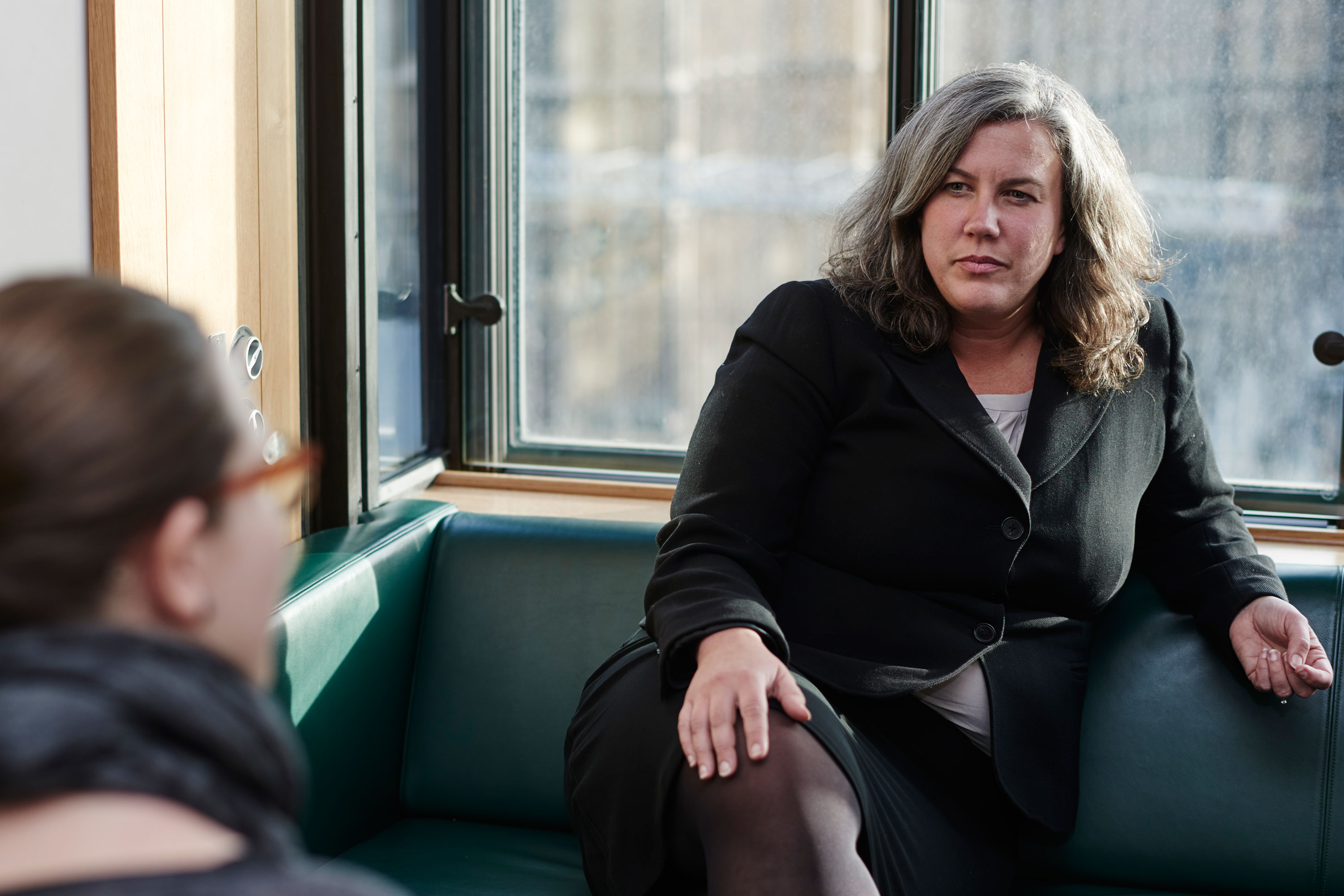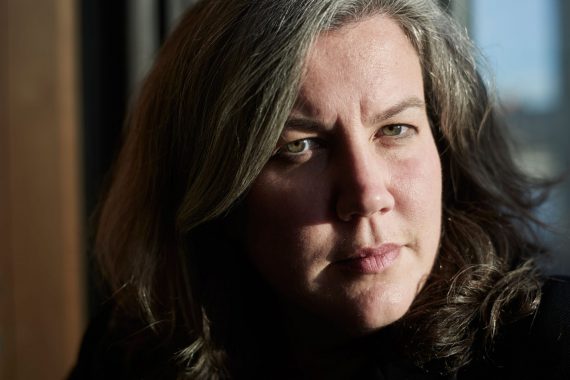
Heidi Alexander 3×2
When Heidi Alexander was appointed Labour health secretary in Jeremy Corbyn’s shadow cabinet five months ago, she was relatively unknown to the public and to Westminster.
But the Lewisham East MP is not new to fighting NHS battles; playing a central role in saving Lewisham Hospital in 2013, to the detriment of health secretary Jeremy Hunt.
And since taking up her new position, she has wasted no time in delivering impassioned attacks on her political opposition, accusing Mr Hunt of ‘behaving like a recruiting agent for Australian hospitals’ in his imposition of the junior doctor contact last week.
It’s apparent when Pulse sits down with Ms Alexander for her first major interview about general practice that she is still learning the ropes when it comes to primary care.
But her passion for the NHS is clear as she sweeps around her Commons office with the same air of stern urgency she applies in the Commons chambers at health questions.
She talks seven-day access, practice closures and about whether she agrees with Labour’s former policies, as she unveils how she would save general practice.
A lot of GP practices have been forced to close and patients are waiting longer for appointments. What do you think should be done to stop this?
I’m really concerned that people are finding it so much harder to see their GP. In the last few months when I’ve been out there speaking to GPs, what has become quite clear to me is that the whole of primary care is understaffed, underfunded and under prioritised.
If we want to tackle the problem about access to GP appointments, we are going to have to invest properly in primary care [and] increase the number of GPs. We are going to have to properly prioritise primary care.
Labour said we need 8,000 more GPs. Do you agree and what would you do to achieve that?
That was a commitment that we set out at the last general election. It was urgent back then and it’s even more urgent now. Clearly it takes a long time to train a GP so even if you get more GPs being trained you’re not going to automatically solve the problem.
This is a pressing problem and the Government can’t stick their head in the sand for any longer – they actually need to come up with an urgent plan to address this.
Do you support GP leaders in calling for general practice to receive at least 11% of the NHS budget?
The current situation is unsustainable because primary care is absolutely pivotal to the way the NHS operates as a whole. It is the first point of call for many patients and if you can’t get primary care right it just has a knock-on impact upon the number of people who need to use hospital services.
Whilst I can’t predict exactly what the financial framework is going to be come 2020, were there to be a Labour Government, it’s certainly an aspiration that I would have to increase the proportion of NHS spend that goes into primary care.
Your predecessor favoured a situation where more GPs would be salaried – is this something you agree with?
That’s not something I’ve looked into in the five months I’ve been in the job. I think GPs have a central role in providing care for our ageing population and what we need to work out is how we organize the system to enable them to do that. We can’t be placing additional burdens on GPs without making sure that the financial support and that the system is organized to enable them to do that.
The NHS Five Year Forward View has set general practice two options for development. Either to expand and do more secondary and community care, or be absorbed by hospital trusts also providing primary care. Do you favour either option?
I think there are some interesting recommendations about bringing the expertise that exists in the hospital around certain specialties out into the community more… Whether that’s diabetes consultants, respiratory consultants, experts in heart disease, working with GPs more closely in the community… in order to perhaps ensure that the sort of care an individual needs is accessed more quickly before a situation gets to crisis.
I think some of those ideas of models of care are very interesting [but] I think what we need to look at is what works. I think there are some interesting things happening around the country and I would like to learn more about those before jumping to any conclusions.
Do you think patients should be able to book a routine GP appointment seven days a week, as per the Government’s pledge for 2020?
Undoubtedly there is demand amongst the public to be able to see their GPs on the evenings during weekdays and probably on a Saturday as well.
I’m not totally convinced that people want to be seeing GPs at teatime on a Sunday, but more flexibility especially for people who are in work, who are struggling to make appointments is really key because if they can’t make an appointment they will often turn up at A&E trying to access the care and advice that they need.
I do think we need to improve access and that is a priority, but whether there is that demand for Sunday evening appointments I’m not so sure.
Some [seven-day access] pilots have been abandoned because the demand wasn’t there and I think that when in a period of financial constraint, which the NHS is undoubtedly in at the moment, we have to use what resources we have very wisely.
A key policy of Labour’s was the 48-hour appointment target – would you like to bring it back?
I think the aspiration of that target is completely right because the frustration that people experience when trying to get a GP appointment is considerable. We are reviewing all of our policies over the next few years.
Another Labour party policy was the QOF. Do you think that it was a mistake?
I’ll have to come back to you on this one. We’ll have a look at it. When I’ve been meeting with GPs I’ve heard some frustrations around it but that wasn’t one I’d anticipated you asking me. Is it alright if we email you on that?
Another really important thing for GPs is the rising cost of indemnity . Would you be open to the Government reimbursing GPs for the cost of clinical indemnity?
I recognize that there’s a problem here. Constituents of mine who are GPs have actually been to my advice surgery to raise this issue with me. Not only are the costs going up by very large amounts each year they also feel there’s very little explanation or warning associated with those rises. As for the particular recommendation that you are making, it would have to be something that I would need to look at in more detail.
What do you think are the big mistakes that have got GPs so angry?
I do feel that primary care has been understaffed, under resourced, under prioritised. If you don’t have enough people doing the work and you can’t fill vacancies in your surgery, then the pressure that is going to mount on the GPs who are there [and this will] invariably lead to very, very low morale.
If you are not being funded properly to do the work that you need to do – and I know there are a lot of debates about whether it was MPIG or the changes to the PMS contracts – I suspect that a lot of GPs feel that they’re just constantly fighting an uphill struggle, and so I think that those issues have led to very low staff morale.
Doctors go into their profession because they want to help people and care for people and if they feel that they cannot do that because of the pressures on the system then I can understand why they feel so demoralised and so disenchanted.
Will you make it a priority to bring up the issues of general practice?
I certainly will. If we only focus on what’s going on inside hospitals, then debates about the future of the NHS will always be futile because how we provide care in the community is so vital and it’s something we haven’t focused appropriately on in the last couple of years.
LMCs recently voted that unless Government came up with a rescue package in the next six months, they would ballot members on mass resignations. Would you support that?
That is a very sad state of affairs, when GPs feel they have no other mechanism than to possibly stage a mass-resignation walkout. I will be watching very closely to see what the feedback is. But I think this really does underline the extent of concern that exists amongst GPs about the way that primary care hasn’t been properly valued and properly prioritised by this Government.
So would you support such a campaign in case the Government doesn’t come up with a reasonable solution to the problem and rescue general practice?
The Government needs to understand the degree of disillusionment that exists among the GP community. There’s huge frustration and I can understand why they might feel that some kind of direct action is necessary.
I also know that GPs themselves will be very concerned about the impact on patients. Every single GP that I have met over the last five months, what has struck me is that they are showing incredible dedication, compassion, commitment, in really difficult circumstances. A lot of GPs will have that at the forefront of their minds when they’re responding to the canvassing of their views.
Pulse October survey
Take our July 2025 survey to potentially win £1.000 worth of tokens













